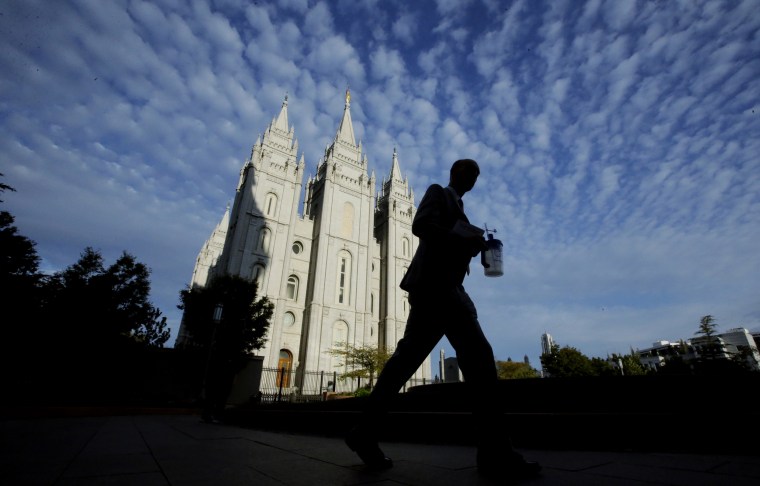SALT LAKE CITY — Most members of The Church of Jesus Christ of Latter-day Saints already knew they were discouraged from taking their guns to church on Sunday, but the church is making sure that message is crystal clear by tweaking the policy to prohibit all lethal weapons.
The previous policy called it inappropriate to have weapons on church property. It still includes an exception for law enforcement officers.
The clarification comes one year after a fatal shooting inside one of its churches in rural Nevada and as religions around the country grapple with how to deal with gun violence that has spread to places of worship.
The change went into effect the first week of August and a letter explaining it was first sent to local leaders in Texas and shared with members there, said church spokesman Daniel Woodruff. The impetus was a new Texas law that takes effect soon that makes it clearer in state law that licensed handgun holders can carry weapons in churches, synagogues and other houses of worship.
The same letter will be sent elsewhere to local leaders, who will be responsible for sharing it with their congregations, Woodruff said.
"Churches are dedicated for the worship of God and as havens from the cares and concerns of the world," the revised policy says. "With the exception of current law enforcement officers, the carrying of lethal weapons on church property, concealed or otherwise, is prohibited."
Woodruff didn't immediately answer questions about why the change was made now and how it would be communicated to members.
The handbook where the language was changed isn't commonly read by church members so how this is disseminated will affect how much impact it has at the congregational level, said Matthew Bowman, an associate professor of history and religion and Howard W. Hunter Chair in Mormon Studies at Claremont Graduate University in California.
The move is likely driven by rising awareness of gun violence in the U.S. Bowman said it also seems to fit with the church's attempt to adapt to being a more global religion, representative of cultures other than the American West that is steeped in hunting and guns.
"It is illustrative of the church's slow evolution away from being a largely Western rural church which it has been for a long, long time toward a more cosmopolitan, international organization," Bowman said.
Today, more than half of the religion's 16 million members live outside the United States. Church President Russell M. Nelson is currently on another global ministry trip, this time to Latin America.
Scott Gordon, president of FairMormon, a volunteer organization that supports the church, said it's pretty rare for people to bring weapons to church but that the faith seems to want to eliminate any ambiguity about the rule.
"In any organization, you have people who might desire to protect or take the law into their own hands, and I think the church in this policy is saying, 'Please don't. Church is a place of peace,'" Gordon said.
Recent shootings in places of worship include a gunman who killed 11 during services last October at the Tree of Life synagogue in Pittsburgh. More than two dozen people were killed by a gunman in 2017 at the First Baptist Church in Sutherland Springs, Texas. In Charleston, South Carolina, eight black parishioners and their pastor were killed in a racist shooting in 2015.
The fatal shooting in the Latter-day Saints church occurred in July 2018 in Fallon, Nevada, when a man opened fire during Sunday services and killing one man and wounding the victim's brother.
